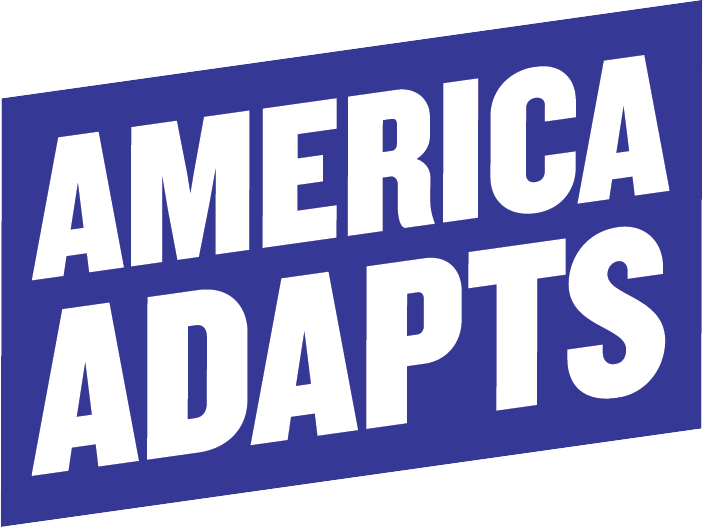Storytelling and the Need for Simple Narratives in Science
Dr. Randy Olson
Randy Olson joins Doug Parsons on America Adapts to discuss the dire state of coral reefs; storytelling as a technique to communicate complex science; and what we can learn from Donald Trump’s vexing, but intuitive narrative instincts.
Randy has had a fascinating career arc. He is a scientist-turned-filmmaker who earned his Ph.D. in Biology from Harvard University (1984) and became a tenured professor of marine biology at the University of New Hampshire (1992) before changing careers by moving to Hollywood and entering film school at the University of Southern California.
The first part of the discussion focuses on the state of coral reefs in the world and how the conservation and science communities have done a poor job communicating the dire state of coral reefs. Randy highlights some of his early career research, diving on some of the most pristine spots in the Caribbean and the Great Barrier Reef in Australia. Doug and Randy talk about how in the 1980s through the 1990s, the coral reef systems begin to really fall apart due to pollution and bleaching events. Randy explains the concept of shifting baselines, which demonstrates how we lose track of the past by resetting what we consider an existing baseline. People diving for the first time on coral reefs in the 1990s would have no idea they are viewing a highly degraded system, hence the ‘shifting baseline.’ This makes communicating the urgency of coral conservation that much harder.
Randy then discusses the critical need to develop simple narratives to communicate complex subjects (such as coral reef conservation!). The coral reef community has struggled to communicate in a cohesive manner the current state of this diminishing ecosystem. Doug and Randy also discuss the diverse and contradictory nature of the coral reef community: scientists, conservationists, and the tourism industry, each of which has its own agenda when communicating the state of coral reefs. Randy discusses the recent presidential campaign and how Donald Trump intuitively understood simple narratives with his “Make America Great Again” slogan.
Other topics covered:
Randy discusses his storytelling technique, “ABT” (and, but, therefore) and how it can be used to simplify coral reef conservation narratives.
We talk about story circles, a workshop that randy runs with different agencies and groups to practice the ABT story narrative structure.
Randy describes how Abraham Lincoln’s Gettysburg Address is a perfect example of the ABT structure.
We go through the thought exercise: what if Donald Trump tried to save coral reefs, how would he approach it?
Randy discusses how the doomsday clock was a good example of how the science community distilled the complex threat of nuclear disaster into a simple message.
How does one adapt to climate change in a ‘post factual world’? We ponder this dilemma.
The “truth” is not prevailing in scientific discourse, but narrative dynamics are, e.g., “Make America great again.”
We discuss the plight of the Vaquita dolphin and how it represents a failure of the conservation community to rally around a message that would have saved it.
Scientists need to understand that Hollywood, movies and television, are meant to entertain. Structure your advocacy message accordingly. Don’t bore people.
With the new administration, Randy observes we have likely entered a new era of anti-science. The science community needs to be prepared.
Finally, we discuss solutions such as getting local groups to take ownership of simplifying the message of adaptation and conservation. It is a provocative and thought provoking episode, but ultimately a hopeful one, where both Randy and Doug challenge the science and conservation communities to learn to embrace simple narratives to get the public more aware of these important issues.
Mentioned in This Episode:
Randy Olson on Twitter, @ABTagenda
“Houston, We Have Story: Why Science Needs Story” by Randy Olson
Don’t be Such a Scientist by Randy Olson
Rand’s blog: scienceneedsstory.com
“Gettysburg Address” by Abraham Lincoln
Finally, yes, most of your favorite podcasts are supported by listeners just like you! Please consider supporting this podcast by donating through America Adapt's fiscal sponsor, the Social Good Fund. All donations are now tax deductible!
For more information on this podcast, visit the website at http://www.americaadapts.org and don't forget to subscribe to this podcast on Itunes.
America Adapts on Facebook!
Join the America Adapts Facebook Community Group.
Check us out, we’re also on YouTube!
On Twitter: @usaadapts
Subscribe to America Adapts on Itunes
Doug can be contacted at americaadapts @ g mail . com .

